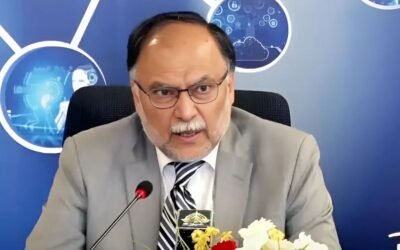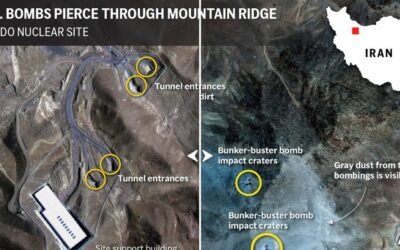In 2025, Pakistan finds itself at a crucial crossroads in its foreign policy, aiming to solidify its position as a key mediator in international conflicts, particularly within Islamic multilateral frameworks. This objective is deeply intertwined with Pakistan’s long-standing participation in the Organization of Islamic Cooperation (OIC), a body that has played a central role in addressing political, economic, and humanitarian challenges facing the Muslim world. Over the years, Pakistan has leveraged its membership in the OIC to advocate for regional stability and to foster dialogue on issues such as the Palestinian cause, Kashmir, and the role of Muslim-majority countries in global governance.
You May Like to Read: OIC and Pakistan: Reliable Diplomatic Backing or Empty Symbolism?
Pakistan’s Role in the OIC
Pakistan has been a consistent and vocal member of the OIC, advocating for the rights of Muslims worldwide. In recent months, Pakistan’s Deputy Prime Minister and Foreign Minister, Ishaq Dar, has represented the country at various OIC meetings, emphasizing the organization’s role in conflict mediation. For instance, during an OIC ambassador-level meeting in New York, Pakistan called for an immediate ceasefire in Gaza, highlighting the OIC’s potential to influence peace efforts in the Middle East.
Furthermore, Pakistan’s leadership within the OIC has been recognized globally. At the United Nations Security Council, Pakistan’s presidency in July 2025 underscored the importance of regional organizations like the OIC in conflict prevention and mediation . These engagements demonstrate Pakistan’s commitment to leveraging the OIC as a platform for promoting peace and stability in the Muslim world.
Pakistan’s Involvement in IOMed
In May 2025, Pakistan joined over 30 countries in establishing the International Organization for Mediation (IOMed) in Hong Kong. This organization aims to provide a structured platform for dispute resolution through mediation, emphasizing dialogue and consensus-building over traditional adversarial approaches . Pakistan’s participation in IOMed reflects its strategic interest in promoting peaceful conflict resolution mechanisms on a global scale.
Deputy Prime Minister Ishaq Dar expressed Pakistan’s intention to play an active role in IOMed, aligning with the country’s broader foreign policy objectives. He highlighted the significance of multilateralism in achieving global peace and stability, a principle that resonates with Pakistan’s diplomatic ethos.
You May Like to Read: Gulf Economies’ Diversification (Vision 2030)
Pakistan’s Strategic Diplomatic Initiatives for Mediation
In addition to its formal participation in the OIC and IOMed, Pakistan has also been advancing diplomatic initiatives aimed at fostering peace through dialogue. For example, Pakistan’s engagement with countries like Saudi Arabia, Turkey, and Iran has been instrumental in mediating regional conflicts, particularly in the Middle East. In 2025, Pakistan played a key role in facilitating peace talks between rival factions in Yemen, supporting dialogue between the Yemeni government and Houthi rebels.
This involvement reflects Pakistan’s broader strategy to position itself as a neutral and constructive actor in conflict zones where it has historical and strategic ties. Moreover, Pakistan’s consistent advocacy for dialogue-driven peace processes is evident in its active support for the Afghanistan peace talks. Pakistan’s backing of the Doha peace process, under the auspices of the United States and the Afghan Taliban, underscores its commitment to fostering stability in South Asia and beyond (dawn.com, pakistanpoint.com).
These actions, though sometimes complex due to competing regional interests, highlight Pakistan’s strategic approach to leveraging diplomatic ties and multilateral platforms to promote conflict resolution.
You May Like to Read: Pakistan and G77
Challenges, and Opportunities
While Pakistan’s involvement in both the OIC and IOMed positions it as a proponent of multilateral conflict mediation, challenges persist. The OIC’s effectiveness has sometimes been questioned due to geopolitical differences among member states. For instance, during the OIC Parliamentary Union meeting in Jakarta, Pakistan’s proposal on Kashmir was blocked by key member states, reflecting the complexities within the organization.
Similarly, IOMed’s success will depend on the willingness of member states to embrace mediation over traditional dispute resolution methods. The organization’s ability to influence major global conflicts remains to be seen, and Pakistan’s role will be crucial in shaping its impact.
Conclusion
Pakistan’s active participation in the OIC and its recent involvement in IOMed underscore its commitment to promoting peace through multilateral frameworks. By leveraging these platforms, Pakistan aims to enhance its role as a mediator in international conflicts. However, the effectiveness of these efforts will depend on overcoming internal and external challenges, including geopolitical differences and the acceptance of mediation as a primary conflict resolution tool. As the global landscape evolves, Pakistan’s strategic engagement in these organizations will be pivotal in shaping its diplomatic influence and contributing to global peace initiatives.




























